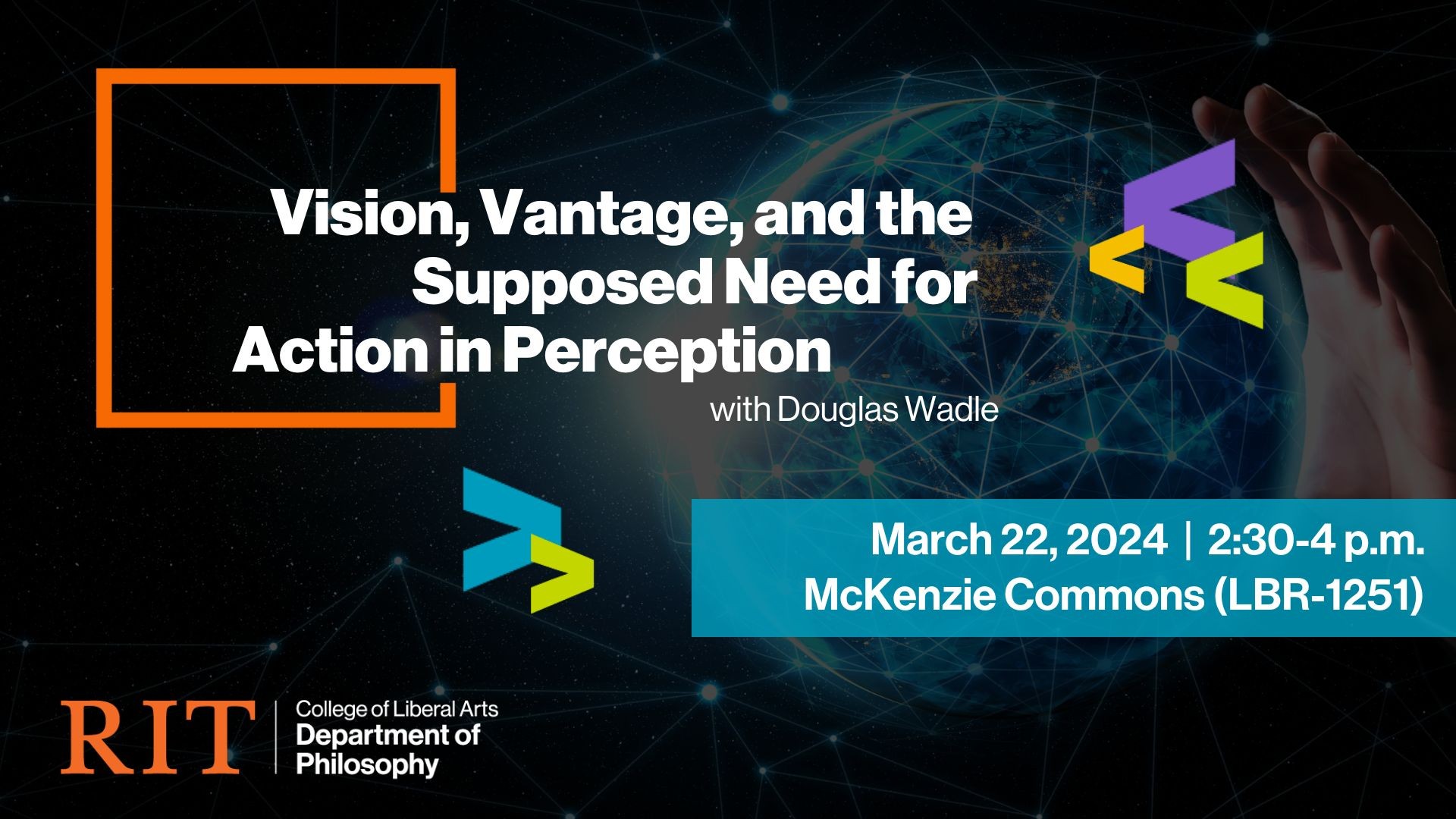Vision, Vantage, and the Supposed Need for Action in Perception

Abstract:
An influential account of visual perception holds that the appearance of an object is determined by relational properties of the object relative to the viewer’s viewpoint. For example, a tilted coin will cast an elliptical projection on the viewer’s retina given the size of the coin, its distance from the perceiver, and the angle at which it is tilted relative to the perceiver’s line of sight. That the coin casts such a projection to the viewer’s viewpoint is a relational property of the coin. Another influential view holds that perceiving the intrinsic spatial features (e.g., shapes) of objects requires action or dispositions to act. It is often claimed that the former view supports the latter. For example, we can only see that the coin is circular if we understand how – or at least that – our motions relative to the coin would change its appearance (where, again, that appearance is determined by the shape of the retinal projection). Other arguments purport to show that action is necessary even to perceive viewpoint-relative properties like the apparent ellipticality of the coin. The speaker will argue that, once we account for some frequently overlooked inputs to visual experience, action/dispositions to act are not necessary to perceive either viewpoint relative or intrinsic spatial properties of visually presented objects. They then extend these results to argue that the relational properties cited by perceptual relativists are not represented in a way that could determine the phenomenal appearances of visually perceived objects.
Event Snapshot
When and Where
Who
Open to the Public
Interpreter Requested?
No









